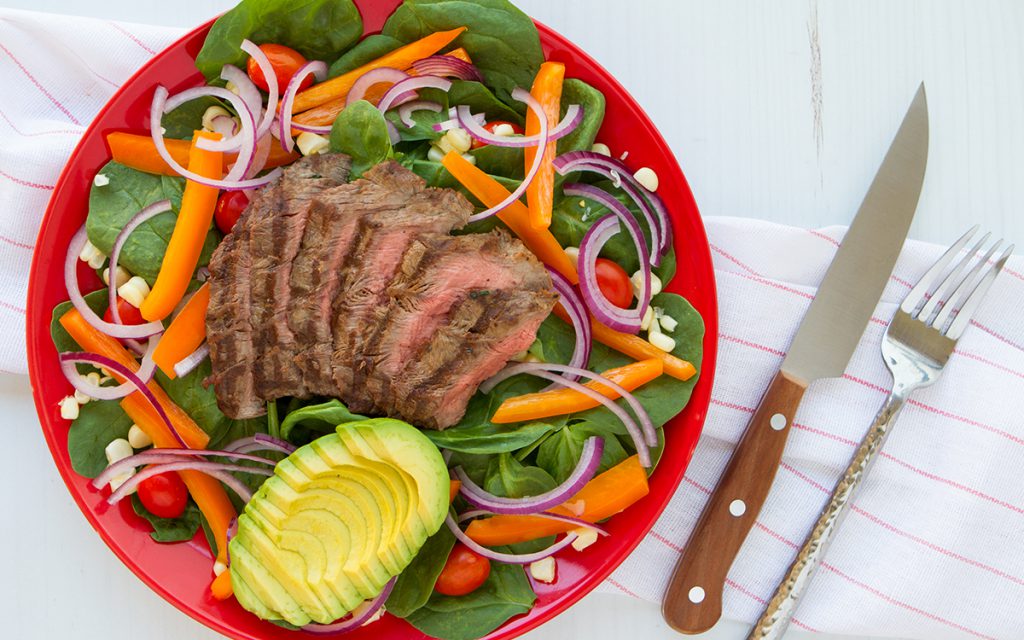Every cell in the human body contains some form of protein. In fact, there are thousands of proteins in the body that complete various bodily functions. Protein is vital for the production of muscle tissue, blood, hair, and the antibodies that fight off infections and diseases. All in all, health and nutrition experts unanimously agree on the necessity of protein for a healthy body.
While the importance of protein remains undisputed, many people are still confused about exactly how much protein they should be consuming on a daily basis. Most of us get enough protein into our diets to avoid protein deficiency, but is it enough to reap the benefits of this vital macronutrient?
Looking for balanced recipes with customized macros? Download Mealplan for a personalized nutrition program.

Determining Your Daily Protein Needs
According to Harvard Health, the daily recommended amount of protein that you should be consuming to avoid a protein deficiency is 0.8 grams for each kilogram that you weigh. For example, if you weigh 135 pounds or about 61 kilograms, then you should be consuming a minimum of about 48 grams of protein per day. While this amount will enable you to meet your basic daily requirements, you may need to consume more protein depending on your lifestyle.
When determining your unique protein needs, it’s important to consider your daily activity levels. Because protein helps with muscle production and recovery, it’s important for those who live an active lifestyle to consume more protein on a daily basis. Sports scientist Dr. Oliver Witard recently published a paper suggesting that high-performance athletes (particularly track and field athletes) who want to maintain their muscle mass aim for an intake of 1.6 to 2.4 grams of protein per day.
The Benefits of Consuming More Protein
From muscle restoration to a healthy immune system, protein provides the body with plenty of positive benefits. Here are a few of the effects you may experience from adding more protein to your diet:

Increased Muscle Mass
If you’re looking to build strong, lean muscles, then upping your protein intake is a must. Studies have shown the effect that this macronutrient has on muscle growth and performance. Protein is also vital for muscle recovery after intense training sessions.
Reduced Hunger and Cravings
Maintaining a high level of physical activity can leave you feeling hungry throughout the day. Foods that contain plenty of protein are great for keeping you full for longer periods of time and reducing cravings. Eating plenty of dietary protein can lower your body’s ghrelin levels. Ghrelin is a hormone that stimulates the appetite and increases your intake of food.

Boosted Metabolism
Adding more protein to your diet can also have a positive effect on your metabolism. Consuming high amounts of protein on a daily basis has been shown to boost your metabolism and the number of calories you burn throughout the day.
Healthy Sources of Protein
If you’ve determined that you need to up to protein intake, there are several healthy, whole foods that you can add to your diet to help you meet your nutritional goals. Here are a few healthy, protein-rich foods to add to your diet:
- Skinless chicken breast (around 53 grams of protein each)
- Salmon and other types of fish (around 20 grams of protein per three-ounce serving)
- Broccoli (3 grams of protein per cup)
- Quinoa (8 grams of protein per cup)
- Eggs (6 grams of protein per one large egg)
- Almonds (6 grams of protein per ounce)


